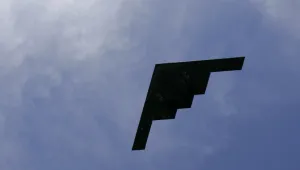International Security is America's leading peer-reviewed journal of security affairs.

Summary
China is more prone to miscalculate in international crises when its national security institutions are fragmented or siloed rather than integrated. Fragmented institutions reduce capacity to relay bureaucratic information to leaders. Siloed institutions restrict information sharing between bureaucracies. Integrated institutions, however, reduce the risk of miscalculation. Studies of the 1962 Nationalist invasion scare, the 1969 Sino-Soviet border conflict, and the 2001 EP-3 reconnaissance aircraft incident illustrate the theory
Tyler Jost, "The Institutional Origins of Miscalculation in China’s International Crises," International Security 48, no. 1 (Summer 2023), 47–90, https://doi.org/10.1162/isec_a_00464.
The full text of this publication is available in the link below.





